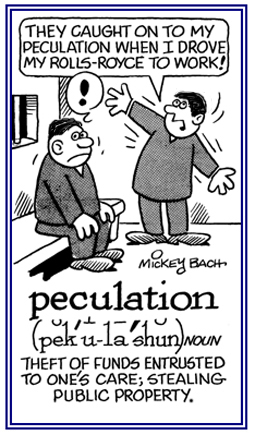-ation, -ization (-iz[e] + -ation); -isation (British spelling variation)
(Greek > Latin: a suffix; action, act, process, state, or condition; or result of doing something)
Although there are over 1,450 word entries ending with -ation or -ization listed in this unit, there are certainly many more which exist in the English language. At any rate, this unit provides a significant number of -ation and -ization examples for you to see.
overconsolidation
overpopulation
An excessive population of an area to the point of overcrowding with a depletion of natural resources, or environmental deterioration.
A procedure regarding a saturation of, or a combination with oxygen: Oxygenation is necessary for aeration of the blood in the lungs to take place successfully.
ozonation
The treatment or combination of a substance or compound with ozone.
ozonization
1. The use of ozone in the purification and deodorization of air and water.
2. The process of treating, impregnating, or combining with ozone.
2. The process of treating, impregnating, or combining with ozone.
1. Policies taken by a government to defeat an insurgency.
2. The act of appeasing someone or causing someone to be more favorably inclined to cooperate or participate in a peaceful action.
3. The procedure of making people calm when they are angry or upset.
2. The act of appeasing someone or causing someone to be more favorably inclined to cooperate or participate in a peaceful action.
3. The procedure of making people calm when they are angry or upset.
1. A simple technique in which a doctor presses lightly on the surface of the body to feel the organs or tissues underneath: Mary's physician was using palpation in order to determine if her kidney had enlarged or if there were any tumors and to make sure that her condition was normal or needed medical care.
2. An examination by touching or manipulating a section of the body with the hands or fingers in order to ascertain its condition for medical diagnosis: Dr. Brown was feeling Joe's pulse beat to determine if his palpation was normal.
3. Etymology: from Latin palpationem, "stroking"; from palpare, "to touch gently".
2. An examination by touching or manipulating a section of the body with the hands or fingers in order to ascertain its condition for medical diagnosis: Dr. Brown was feeling Joe's pulse beat to determine if his palpation was normal.
3. Etymology: from Latin palpationem, "stroking"; from palpare, "to touch gently".
paludification
parasitization
Infection or infestation with a parasite or parasites.
Etymology: from Late Latin participationem, participatio, a noun of action from the stem of Latin participare, "participate"; from particeps, participis, "partaker"' from pars, partis, "part" + -cip-, a form of the stem capere, "to take".
A depraved, dishonorable, or immoral act: Once in awhile, there have been reports about adults, including teachers and religious leaders, who have committed peccations with minors.
The deliberate act of acquiring public capital or property by someone in an official position or the embezzlement or stealing of the monetary corpus or goods entrusted to a person: The accountant of the company was discovered to be practicing peculation which almost caused the firm to go bankrupt.

© ALL rights are reserved.
Go to this Word A Day Revisited Index

Go to this Word A Day Revisited Index
so you can see more of Mickey Bach's cartoons.
In geology, the processes involved in the formation and development of a pediplain or pediplains: Amy read about pediplanation and how they were created in the piedmont area of a desert which could have been covered by a thin layer of alluvial or even quite bare.
Any of the various processes by which the surface of the soil is disturbed: Pedoturbation consists of soil being mixed by faunal pedoturbation, like the burrowing of rabbits and moles, and floral pedoturbation, like root growth and the uprooting of trees.
pejoration (pej" uh RAY shuhn)
1. A worsening deterioration, or decline in quality, status, or value.
2. Made more scornful, despised, disdainful, disrespectful, or contemptuous.
3. A change over time in the meaning of a word so that it becomes less favorable or more negative; for example, the English word "cunning" formerly meant "learned" but now it is used to mean "cleverly deceitful".
4. Semantic changes in words to a lower, less approved, or less respectable meaning.
5. In linguistics, a change of meaning for the worse; the process by which the meaning of a word becomes negative or less elevated over a period of time; such as, silly, which formerly meant "deserving sympathy, helpless or simple," has come to mean "showing a lack of good sense, frivolous".
6. Changes over time in the meanings of words so that they become less favorable or more negative.
2. Made more scornful, despised, disdainful, disrespectful, or contemptuous.
3. A change over time in the meaning of a word so that it becomes less favorable or more negative; for example, the English word "cunning" formerly meant "learned" but now it is used to mean "cleverly deceitful".
4. Semantic changes in words to a lower, less approved, or less respectable meaning.
5. In linguistics, a change of meaning for the worse; the process by which the meaning of a word becomes negative or less elevated over a period of time; such as, silly, which formerly meant "deserving sympathy, helpless or simple," has come to mean "showing a lack of good sense, frivolous".
6. Changes over time in the meanings of words so that they become less favorable or more negative.
An example is the English word cunning, formerly used to mean "learned" but now it is used to mean "cleverly deceitful".


